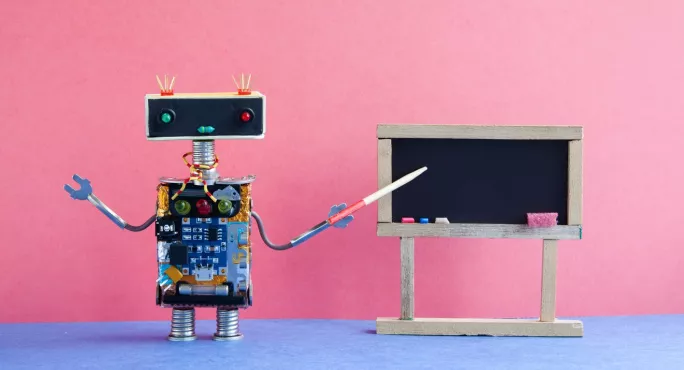Rose Luckin, professor of learner-centred design at the UCL Institute of Education, is worried about the machines. Or more specifically, artificially intelligent machines seeping into education and the lack of response, thus far, from teachers as to what that might mean for their jobs.
“The computer can do the academic knowledge delivery in a very individualised way for each learner,” she explains on this week’s Tes Podagogy. “For academic knowledge, in well-designed subject areas, the evidence shows that these systems can be as effective - if they are well designed - as a human teacher, but not a human teacher acting 121.”
Robot teachers
The implications of this have not been fully recognised, she believes.
“If what you prize in your education system is academic knowledge and we can build systems that can teach it and learn it faster than we can, you put yourself in a tricky situation,” she says. “You can understand why someone in charge of the purse strings might think: why do I need these humans?
“That is an apocalyptic scenario, certainly dystopian, and I don’t think that is what we should do. But I think we need to recognise that if we don’t change our perceptions about what we should be valuing in our education system, we do run the risk of handing over too much to artificially intelligent systems.”
Changing the focus
In a wide-ranging podcast interview, Professor Luckin explains how we build a system that guards against the slow creep of technology-led teaching into the classroom. She believes it is about better understanding intelligence and the difference between information and knowledge.
“Human intelligence is about so much more than academic knowledge,” she argues. “We need to now be very intelligent and look much more broadly about what we require of our education systems so we do more than academic knowledge. The parts we cannot automate are the human-rich parts that are vitally important for teaching.”
You can listen to the podcast - which also includes discussion around 21st Century skills, self-efficacy, and emotional and physical intelligence - via iTunes or via the below player:




